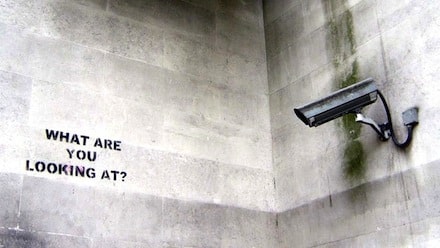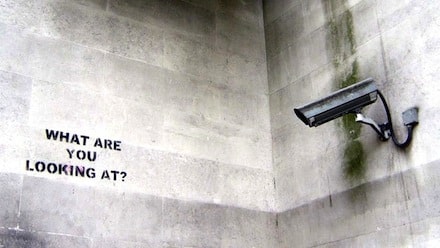One of the fascinating aspects of tyranny is that people can recognize it when it happens in other countries but are blind about it when it happens at home. The American people, especially the US mainstream press, are a perfect demonstration of this phenomenon.
Consider the following article from last Sunday’s New York Times: “Dilemma for Uber and Rival: Egypt’s Demand for Data on Their Riders.” It details a request by the military dictatorship that governs Egypt that Uber provide government officials with all of its data about customers and their Uber rides.
The purpose of the request?
To monitor the activities of the citizenry, of course. Or as the Times puts it, “The software would be a powerful tool in the hands of Egypt’s security services, which, under President Abdel Fattah el-Sisi, have ramped up spying on citizens as part of an effort to stifle dissent and entrench Mr. Sisi power.”
See how easy the Times recognizes tyranny … when it’s in Egypt?
That’s not all. The Times writes: “The security services can already track Egyptians through their cellphones. But ride-share spying speaks volumes about Mr. Sisi’s ambitions for electronic surveillance, at a time when his government has already imprisoned citizens for social media posts, has hacked activitists using fake emails and has blocked encrypted messaging applications….”
What is the Egyptian dictatorship’s justification for monitoring the activities of its citizenry? The war on terrorism, of course. As the Times states, “The Egyptian government justifies such harsh measures by pointing to the threat from militants like the Islamic State….”
Now, let’s look at post-9/11 America. Secret mass surveillance of the citizenry by US security services. Edward Snowden and other leakers reveal some of the secrets and are called traitors.
The Pentagon and the CIA wield the omnipotent power to assassinate anyone they want, including American citizens, without judicial interference. That power was upheld by the federal judiciary in the Anwar al-Awlaki case.
US security services also wield the power to kidnap people, including American citizens, place them in military dungeons or camps and torture them. The federal judiciary upheld that power in the Jose Padilla case.
They also wield the power to seize people and deliver them to friendly dictatorial regimes, like they have with Egypt and Syria. The federal judiciary upheld that power in the Mahar Arar case.
And let’s not forget the USA PATRIOT Act, which was enacted almost immediately after the 9/11 attacks, which the federal judiciary also upheld.
What was the justification for all these post-9/11 totalitarian measures? The war on terrorism, the same justification that the dictatorial regime in Egypt uses to justify its totalitarian powers.
Where was the attitude of American liberals and conservatives when these post-9/11 powers were being adopted by US security services?
Most of them quickly fell into line, falling for the government’s line that such totalitarian measures were to keep us free, safe, and secure. The terrorists (which later morphed into the Muslims) were coming to get us. Unless the national-security services wielded these totalitarian powers, the terrorists would win. They would take over America, establish Sharia law, and force us to study the Koran.
In fact, for all practical purposes, it was only us libertarians who were opposing the acquisition of such tyrannical powers and, not surprisingly, statists were attacking us viciously as unpatriotic America-haters and terrorist-lovers for questioning the US government’s adoption of dictatorial powers.
Throughout history, governments have used crises to justify the adoption of totalitarian powers. In the model totalitarian regime — Nazi Germany — Hitler used the terrorist attack on the Reichstag to ask the German Parliament to grant him emergency powers — temporarily, of course (although, not surprisingly, they lasted to his death in 1945). That’s what the Enabling Act in 1933 was all about. And don’t forget that Hitler had another threat to justify his “temporary” totalitarian powers, one that might seem familiar: communism and the Soviet Union, including Russia.
That’s what the Egyptian military dictatorship (which, don’t forget, is a close partner and ally of the US government) is doing — using crises and terrorism to justify its dictatorial powers. It’s an old but highly effective strategy employed by totalitarian regimes.
But it’s also what the US national-security state did after the 9/11 attacks. And don’t forget — the totalitarian powers that were adopted by US security services are still in existence — 16 years after the attacks — longer now than Hitler’s “emergency” powers were in existence, and there is still no sign that US security services intend to relinquish such powers any time soon.
It wasn’t supposed to be that way. Take a close look at the Constitution. Do you see anything about crises serving as a justification for the adoption of totalitarian powers? Not a peep about that. That’s because the Framers understood that crises are the time-tested method by which regimes destroy freedom through the acquisition of totalitarian powers. Our American ancestors understood that it is within times of crises that freedom is in greatest danger, at the hands of people’s own government.
It’s easy to recognize tyranny when it’s being imposed in Egypt, North Korea, China, or Russia. Too bad it’s so difficult to recognize it at home.
Reprinted with permission from the Future of Freedom Foundation.


